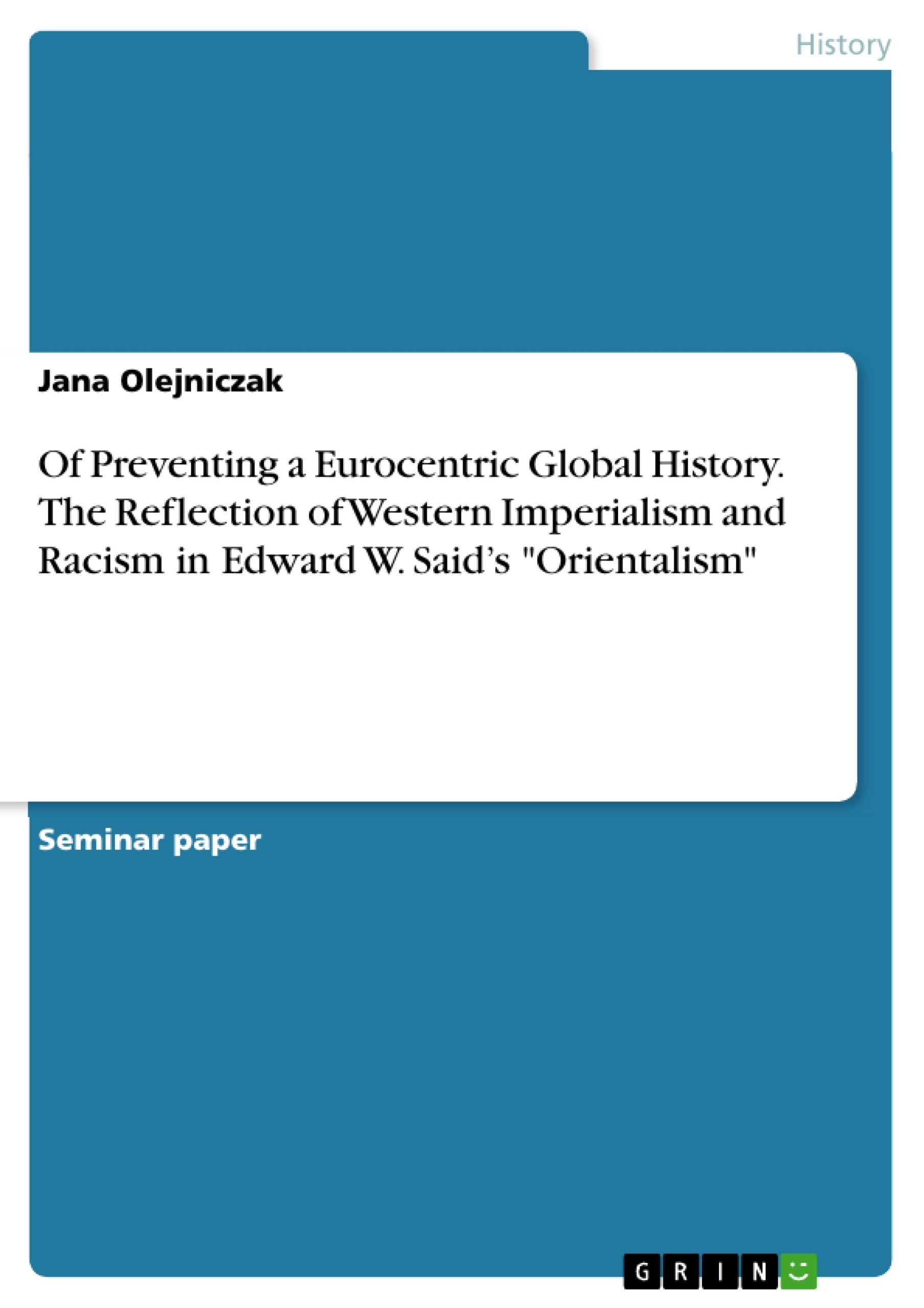This paper aims at explaining the origins of a belief in Western supremacy and the development and aftermaths of a Eurocentric intellectual history that has cut out the representation of non-western countries for an immense period of time. The underlying thesis goes as follows: Western supremacy prevents a Global Intellectual History in terms of an imperialist and racist attitude towards non-Western cultures.
The belief in western supremacy has enshrined in tradition for endless centuries, especially when considering its origin within the Colonial Era and the ongoing dragging evolution that has not found a pleasing outcome ever since. Yet recent protests and intellectual movements have proven that our modern multicultural society is not accepting these colonialist ideologies for any longer: The Black Lives Matter movement, for example, has evoked empathy for the life of black citizens in the West, who are experiencing not only injustice but violence, due to their origin, religion and skin tone.
Unfortunately, the mistaken conviction that being a citizen of a superior nation has continued to exist in the western world; Europe’s rise of political right-wing parties demonstrates a world view which aspires to be a western one only. Thus, the political situation inside Europe, especially the refugee policy, has created resentment against a multicultural society. Moreover, the resurgence of anti-immigrant and nationalist sentiment depict the renewed urgency of non-Western intellectuals within minority positions and multicultural backgrounds. Their works challenge the idea of a home-grown, national, even colonialist literary and philosophy tradition inside the Western World. In other words, the idea of an international globalized history helps us, in order to gain transnational understanding of contemporary problems, including racial equality, poverty and cultural rights. In detail, they allow a representation that differs respectively from a Eurocentric point of view.
Inhaltsverzeichnis (Table of Contents)
- Introduction
- The Creation of Eurocentrism
- Theories on Imperialism
- Origins of Racism
- Concepts of Eurocentrism
- 'Orientalism (1978)' by Edward W. Said
- Defining 'Orientalism'
- Thesis
- Reflection of Imperialism and Racism
- Michel Foucault's Model of Power/Knowledge
- Global Intellectual History
- Defining the Post-Colonial
- Pan-Africanism
- Pan-Islamism
- Conclusion
Zielsetzung und Themenschwerpunkte (Objectives and Key Themes)
This paper examines the origins of the belief in Western supremacy and the development and consequences of a Eurocentric intellectual history that has excluded the representation of non-western countries for a long time. The central thesis argues that Western supremacy hinders a Global Intellectual History due to its imperialist and racist attitudes towards non-Western cultures.
- Eurocentrism as a consequence of Western imperialism and racism
- The impact of Eurocentrism on the representation of non-Western cultures
- The role of Edward W. Said's 'Orientalism' in challenging Eurocentric perspectives
- The development of a Global Intellectual History and the field of Post-Colonial Studies
- The significance of understanding the postcolonial discourse within a Global Intellectual History
Zusammenfassung der Kapitel (Chapter Summaries)
The introduction provides a brief overview of the belief in Western supremacy and the ongoing struggle against colonialist ideologies. It highlights the importance of a globalized historical perspective to understand contemporary issues related to racial equality, poverty, and cultural rights.
Chapter 2 delves into the theoretical background of Eurocentrism, exploring concepts of imperialism, racism, and the historical development of Western dominance. It examines the origins of these ideas, tracing their roots back to European colonialism and the scientific classification of humankind.
Chapter 3 focuses on Edward W. Said's seminal work 'Orientalism', analyzing his arguments about Western attitudes towards the East and their reflection of imperialism and racism. It further explores Michel Foucault's theory on knowledge and power as a framework for understanding the construction of Orientalism.
Chapter 4 introduces the concept of a Global Intellectual History and the field of Post-Colonial Studies. It examines various works, including Bryan S. Turner's 'Orientalism, Postmodernism and Globalism' and Cemil Aydın's 'Globalizing the Intellectual History of the "Muslim World"', to understand the postcolonial discourse within a broader global context.
Schlüsselwörter (Keywords)
Eurocentrism, Western supremacy, imperialism, racism, Orientalism, Edward W. Said, Global Intellectual History, Post-Colonial Studies, non-Western cultures, representation, cultural rights, multicultural society.
Frequently Asked Questions
What is the main thesis of Edward Said's "Orientalism"?
Said argues that "Orientalism" is a Western style for dominating and having authority over the Orient based on imperialist and racist attitudes.
How does Eurocentrism affect Global History?
Eurocentrism prevents a truly global history by excluding or misrepresenting non-Western cultures and positioning the West as superior.
What is Foucault's model of Power/Knowledge?
It is a framework used by Said to explain how Western knowledge about the "Orient" was constructed to exert power and control over those regions.
What are Post-Colonial Studies?
An academic field that examines the legacy of colonial rule and the ongoing effects of imperialism on cultures and societies worldwide.
Why is Global Intellectual History important today?
It helps us gain a transnational understanding of contemporary problems like racial equality, poverty, and cultural rights in a multicultural society.
- Quote paper
- Jana Olejniczak (Author), 2022, Of Preventing a Eurocentric Global History. The Reflection of Western Imperialism and Racism in Edward W. Said’s "Orientalism", Munich, GRIN Verlag, https://www.grin.com/document/1273664



